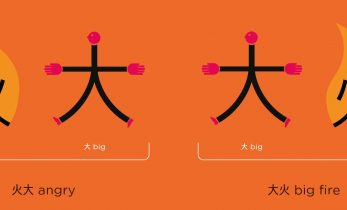Greater than 5 minutes, my friend!
An Old Dog Can Sometimes Still Learn New Tricks … But He’d Better Know His Limitations
Every time a plane is landing at an airport, chimes and beeps indicating the availability of internet service greet passengers turning on their cell phones the moment the wheels hit the runway, announcing to tired travelers that the long wait is over.
Most people love the convenience of almost miraculous technology. Only a few years ago, the only help that a traveler could expect at an airport was the smiling face of a friend or relative waiting at the exit.
We used to have to stop our car to ask for directions when we got lost in an unfamiliar place, a major inconvenience especially for men, because unlike most women, most men absolutely hate asking for directions. Must be something to do with testosterone. Fortunately, all we have to do now is listen to the authoritative voice coming out of our smart phones ordering us which way to go.
Men can live with that, as long as they don’t have to demean themselves by asking for help.
There is one group of people of both genders, though, that often refuses to accept modern conveniences, or even to acknowledge that these are indeed nifty inventions, because they perceive them as too damn complicated.
They simply refuse to learn anything new, and that’s that.
I am talking about people approximately my age or older who are politely called senior citizens. Not all of them, of course, but still, many refuse to use new technology. A few will greedily grab and turn on their cell phones to check for messages and e-mails just like everybody else when the plane lands, but many just grab their bag from the overhead bin and get ready to leave their seats.
Some do use cell phones, especially the simpler type, but mostly just for calling.
It is not really the number of years that we have lived on this earth that defines our age. Regardless of our age, we are old when we refuse to learn new things, especially when we could really put those new things to good use in our lives.
The saying “you can’t teach an old dog new tricks ” (in Japanese they say “you can’t bend an old tree”), which must be centuries old, is as true now as ever.
But younger people sometimes also stubbornly refuse to learn something new, without realizing that the payoff for learning new things really is worth the trouble.
I myself have certainly done my share of stubbornly refusing to learn new things. When I started translating in the 1980s of the last century (man, I’m so old!), I decided that I would be translating only Japanese. After all, I majored in it and I still love the challenge of this incredibly complicated but beautiful language. Plus, I figured I could get better rates than if I were translating Czech or Russian, for example.
So for the first five years or so, I was translating basically only Japanese. But then a client who was sending me only Japanese up until that point, a small patent law firm in San Francisco that no longer exists, sent me a patent in German for translation. I still remember what it was about: it was a description of geometrical patterns on the “stone” of an ornamental ring worn around the finger that you could fiddle with to create numerous combinations of the elements of the pattern.
I read the description and understood immediately how the design worked. But I did not know how to say it in English because my brain worked at that point kind of like a one-way street: from Japanese to English only. It took me a while to translate that patent. Although it was fairly short, I had to look up a lot of words while I was translating it.
When the customer then thanked me in an e-mail for my “excellent translation”, it dawned on me that it would be really stupid to keep turning down German patents just because I prefer Japanese. So I also started to translate patents from German, while charging the same for German as Japanese, although I could literally feel the pain in my brain as I was forcing it to start building permanent connections between technical terms not only from Japanese to English, but also from German to English.
In Japanese, I have the characters to guide me through the minefield of technical terms.
In German, a word like “Ansatz” can mean, according to an old technical dictionary that I almost never use anymore (“Ernst – Wörterbuch der Industriellen Technik“), depending on the context:”projection, shoulder, catch, driver, dog, strip, neck, nose, heel, lug, piece, stud, tappet (which, in case you didn’t know it, is a projection that imparts a linear motion to some other component within a mechanism), lengthening piece, incrustation, deposit, mix, batch … although GoogleTranslate falsely claims that it usually means 1. approach, 2. beginning, 3. attempt. (Never trust machine pseudo-translations!)
So many words in German can be like that. Lengthening piece was what I was looking for, of course.
What the German language needs is another Rechtschreibreform (German orthography reform) that would include the use of Japanese characters to make the language less impenetrable, which, incidentally, is a word that is almost always used only about German when applied to a language, and for good reason.
Then, little by little I started adding French patents because that was another language that I had been studying for many years. Fortunately, fate was kind to me because the first patents for translation ended up being really simple.
But then I got cocky – somebody asked me if I could translate a Polish patent about biotechnology … and I said yes. I should have at least asked to see it first. But I didn’t.
This was in 1994 when there was basically no internet yet and fax was a technological miracle, although some people were already using e-mail. So I could not have used the internet for research as I would now, and although I have several Polish-English dictionaries, the terms that I needed were not there.
The result was a disaster. Fortunately, I was able to find a bilingual Polish patent agent who understood the field and who translated the patent very well.
“A man’s got to know his limitations” was the way Clint Eastwood put it in the movie Dirty Harry in his role as inspector Callahan. And if you don’t know your limitations, you are definitely going to find out one day what they are, probably the hard way, and it will hurt.
But one can look at it as a learning experience, right? Whatever doesn’t kill you makes you stronger and all that, right? But is that really true? Maybe sometimes whatever doesn’t kill you makes you stronger, and sometimes it makes you weaker, perhaps even too weak to go on living.
So that is the paradox and the daily dilemma of our lives: we have to keep learning new tricks, or admit that at this point we are too old to learn.
But at the same time, we have to know our limitations, and if we get too cocky and misjudge them, it is going to hurt.




